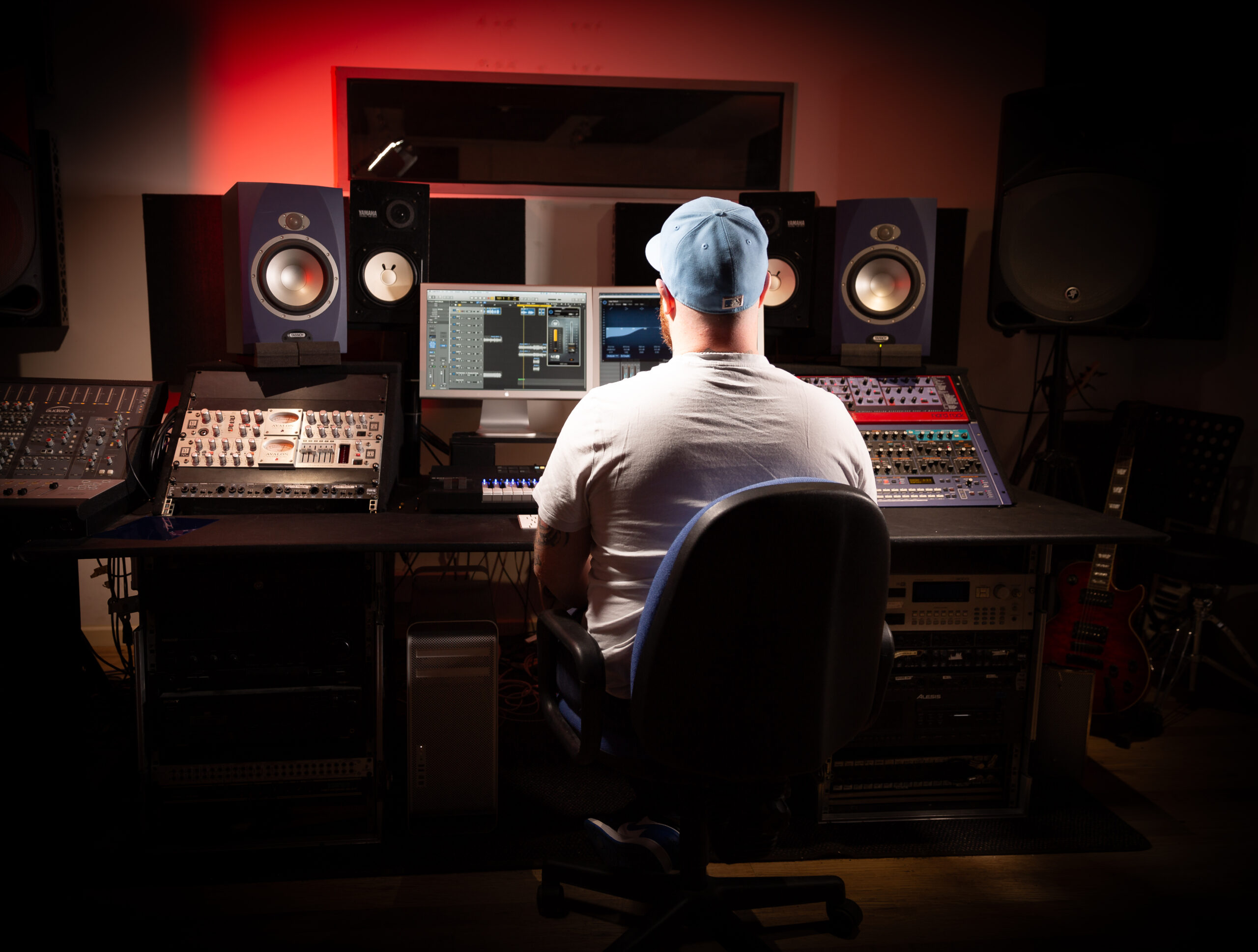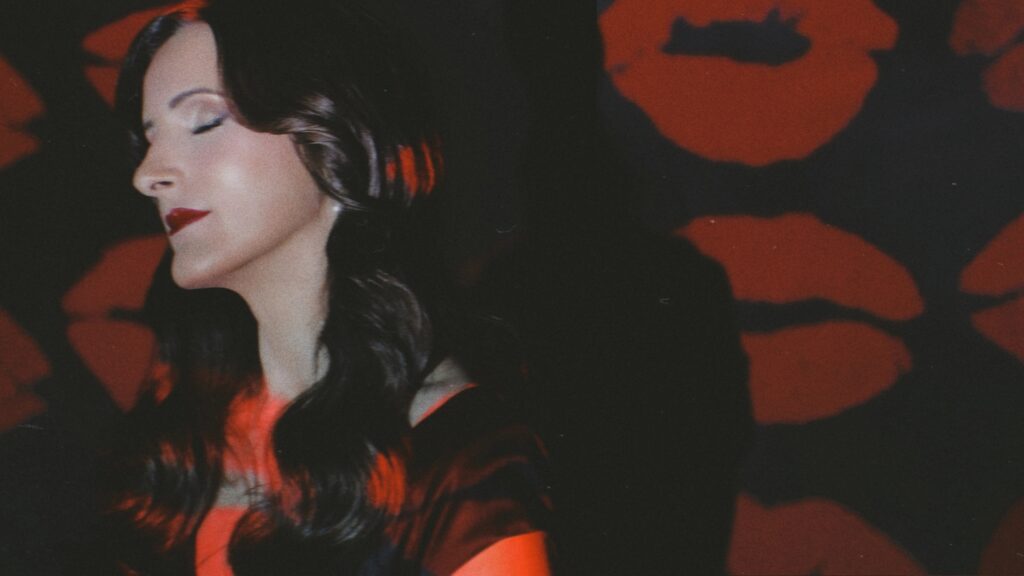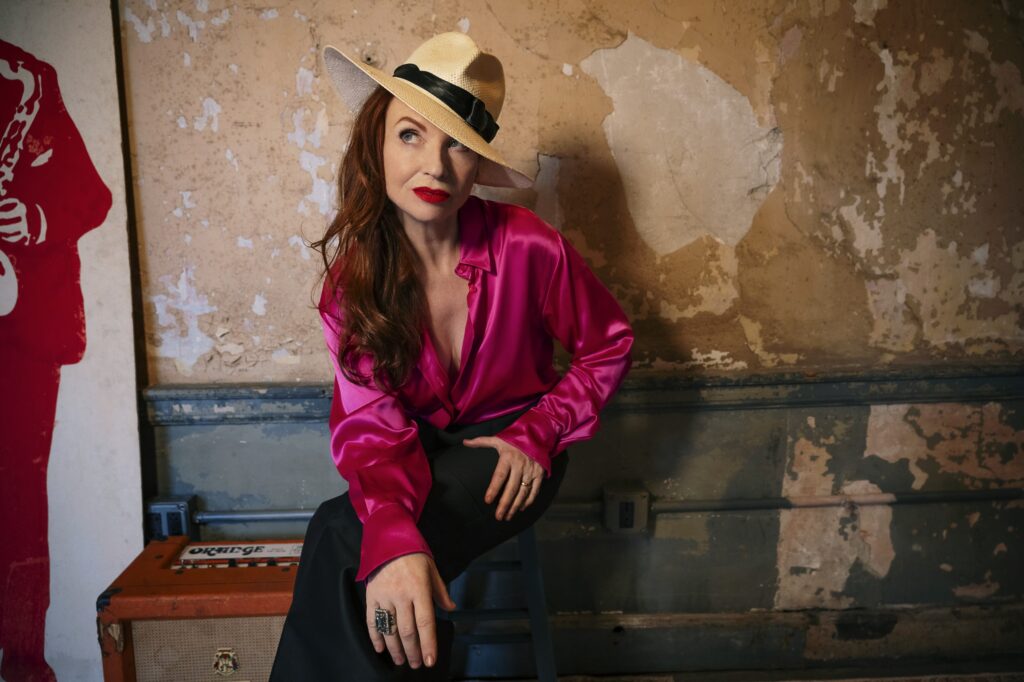When MAAME speaks about “Daydreaming,” her newest single, she does so like someone describing a secret portal. The UK-based singer-songwriter leans forward, her voice soft but certain, and begins painting the scene that birthed the song: a quiet room, maybe her childhood bedroom, where reality begins to blur into something sweeter.
“The idea came to me randomly really,” she says with a smile. “A lot of my ideas stem around darker, self-aware topics like living in uncertainty around yourself and relationships. What I like about this idea is that it contrasts with those topics because it’s about escapism. We all have this need to want to be transferred somewhere else. We think the grass is greener. It’s part of the human experience.”
That human experience — the act of drifting into another world when the real one feels too sharp — is something MAAME knows intimately. She admits that daydreaming has always been part of her life. “I was told a lot as a child in primary school that I was always ‘away with the fairies,’ not really paying attention,” she recalls, laughing. “It’s still something I experience as an adult.”
“Daydreaming” feels like a crystallization of that impulse: a pastel-toned pop-R&B song that sounds like sunlight refracted through cotton-candy clouds. Produced by Adam Salaah, anchored by Joe Scucc’s guitar, and mixed by Gela Akhalaia, the track feels both grounded and untethered. MAAME’s voice glides over harmonies that shimmer like reflections on glass, pulling listeners into the space between consciousness and fantasy.
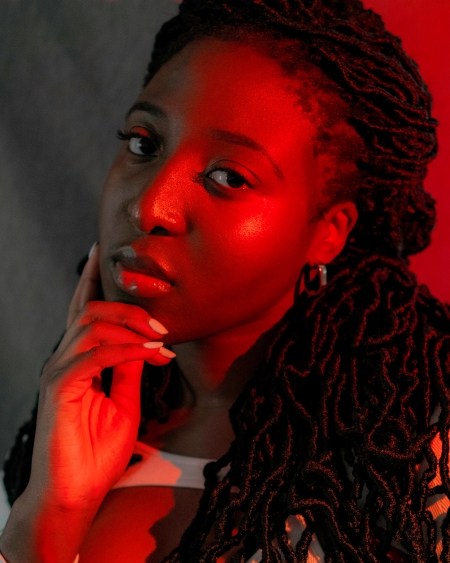
Before MAAME began shaping her own sonic identity, she was simply a girl in Margate trying to find her voice. She remembers the moment she decided to take singing seriously — a mix of chance, solitude, and quiet determination. “When I moved to Kent for the first time, I didn’t know anyone and there wasn’t much to do,” she says. “So I felt quite isolated. I thought it would be the perfect time to find a new hobby, and vocal lessons were the first thing that came to mind.”
Those lessons, with local artist Hughie Gavin, would change everything. “Before I started, I’d never really heard of vocal warm-ups and I didn’t have much experience singing in harmonies. Learning about that gave me so much more confidence,” she says. “Before that, I’d only sung publicly once — at a school talent show in secondary school. It went well, but I remember not singing to the full potential I wanted and feeling disappointed with myself afterwards.”
Her newfound confidence led her to join the Social Singing Choir and the Institute Collective Choir, lending her vocals to SWIM DEEP’s “To Feel Good” in 2018 and performing on BBC Radio Kent two years later. “Everything blossomed from there,” she says. “I became obsessed with singing, and then songwriting became an obsession too.” She began setting milestones for herself: first perform covers, then write originals, then record, then release. “I set little internal milestones,” she says. “Brick by brick, that’s how I’ve built everything.”
Listening to MAAME’s music, it’s clear that she resists being boxed in. The fluidity of her sound — that effortless fusion of pop, R&B, and soul — mirrors her belief that creativity shouldn’t obey genre. “When I think of songs, I don’t tend to focus on a particular genre I should target,” she says. “My creativity feels very fluid. I think to be a versatile artist, you shouldn’t be bounded too much by genres. It all feels too categorised to me.”
She admits that genre becomes more important when she’s crafting a full body of work, like an EP or an album, where cohesion matters. “But I think the genre depends on what feels right for the topic of the song,” she adds. “It should always start with the feeling.” Her sound reflects her influences, but in her own way. “Doja Cat’s Hot Pink era especially influenced me,” she says. “I love that album. I used references from it to pick out particular instrumentals.” She also draws from Lauryn Hill’s legendary cover of “Can’t Take My Eyes Off You,” saying she was inspired by “the idea of harmonies running throughout the song to carry its emotional weight.”
Still, MAAME insists her music feels more organic than inspired. “It’s difficult to draw directly from artists,” she says. “I chose those influences because of their aesthetics and the way they’ve branded themselves.” Her new single’s warmth and layered harmonies feel as considered as they are intuitive. “The guitar element came from me,” she says proudly. “I wanted it to be the backbone of the track and to build a melody that complements it, while still fitting that playful pop-pink R&B vibe.”
What makes MAAME’s songwriting stand out is its emotional depth. Each track feels like an unfolding world — one where vulnerability meets quiet power. She’s acutely aware of that balance. “Vulnerability is something people often shy away from,” she says. “But it can be incredibly powerful, especially in music. Music, at the end of the day, is about getting people to empathise and connect with what you’re writing about. Have they lived this experience? Have you brought something to light that they didn’t realise they needed to hear?”
Her voice softens slightly. “Showing vulnerability takes strength, and it can become a superpower when it’s done authentically. I know people appreciate honesty in music when it’s presented well, which is why I feel confident exploring that now.” That confidence didn’t come overnight. “It takes time to build the confidence to be vulnerable,” she admits. “Even now I wouldn’t say I’m 100% there, but I do feel like I’m getting close.”
Collaboration, for MAAME, is not about surrendering control but about expanding possibility. “I have an idea of what I would like the song to sound like,” she says. “I have the main ideas there, like the melody and harmonies. Sometimes I’ll ask producers to try things that I think in my head would work, but then in reality you realise it doesn’t sound as great as you expected.”
She’s learned to embrace that push and pull. “There has to be a balance between the main parts of the song that will definitely work and also being open to trying new elements that complement the song better,” she explains. “It’s always a lot better to work with multiple producers because they can bring in new perspectives that make the song more rounded.”
For Daydreaming, that meant making deliberate choices. “We used a different mixer because that was their speciality, and I requested a guitarist because I wanted a real guitar sound,” she says. “I knew it would be important to make this sound as authentic as possible because the song needed this.”
One of MAAME’s most distinctive traits is her ability to pair serious emotion with playful imagination. “I don’t think about this too consciously,” she says. “I write what feels right, but I have enough awareness to know that if you write a happy song, it shouldn’t be too sickly sweet. There needs to be some bitterness to make it feel more real and more relatable, otherwise it can end up sounding too corny.” She laughs when she admits she doesn’t think corny is always bad. “There’s actually nothing wrong with corniness, in my opinion. I think you can work it to your advantage if it’s done at the right level. It’s like adding the right amount of salt — nobody likes it on its own but if it’s added to the right degree, it works great.”
In the ever-evolving UK R&B-pop landscape, MAAME is carving a lane that feels refreshingly honest. “R&B has felt quite exclusive,” she says. “There’s certain types of people who will listen to it, but it’s not as popular as straightforward pop, especially in the UK.” Still, she sees this as an opportunity. “I think it’s a scene that still has plenty of space to grow in the UK, so it’s relatively easier to create a space for yourself,” she says. “What sets me apart is the vulnerability I like to tap into. My singles also show a lot of variation in instrumentation, so each song has a different vibe, even though they technically still sit within the same genre.”
Success in the music industry can often feel like a race against the clock. MAAME knows this pressure well. “The challenge has been time,” she says frankly. “I’ve been involved with a producer that took a couple of years to work on my songs, so that slowed things down. COVID also came at the worst time when I was ready to start finding producers. That slowed things a couple more years.” She pauses. “It got to a point I almost wanted to give up before I started because I thought it’s too late for me.”
What changed her perspective was seeing artists like Empara Mi and Lady Blackbird find success later in their journeys. “They’re still chasing their dreams outside of the conventional age when artists ‘make it.’ I think every artist has a different measure of success, but I definitely feel like there’s this hidden pressure that you should become successful at a young age. It’s really starting to not be the case anymore, and it’s refreshing to see.”
Her tone brightens as she continues. “We’re moving into an age where people are more outspoken and feel more motivated to chase their passions no matter what. I think it’s given me more inspiration for my songwriting because all of us experience self-doubt or listen to the inner critic to some degree — and that can be another relatable topic.”
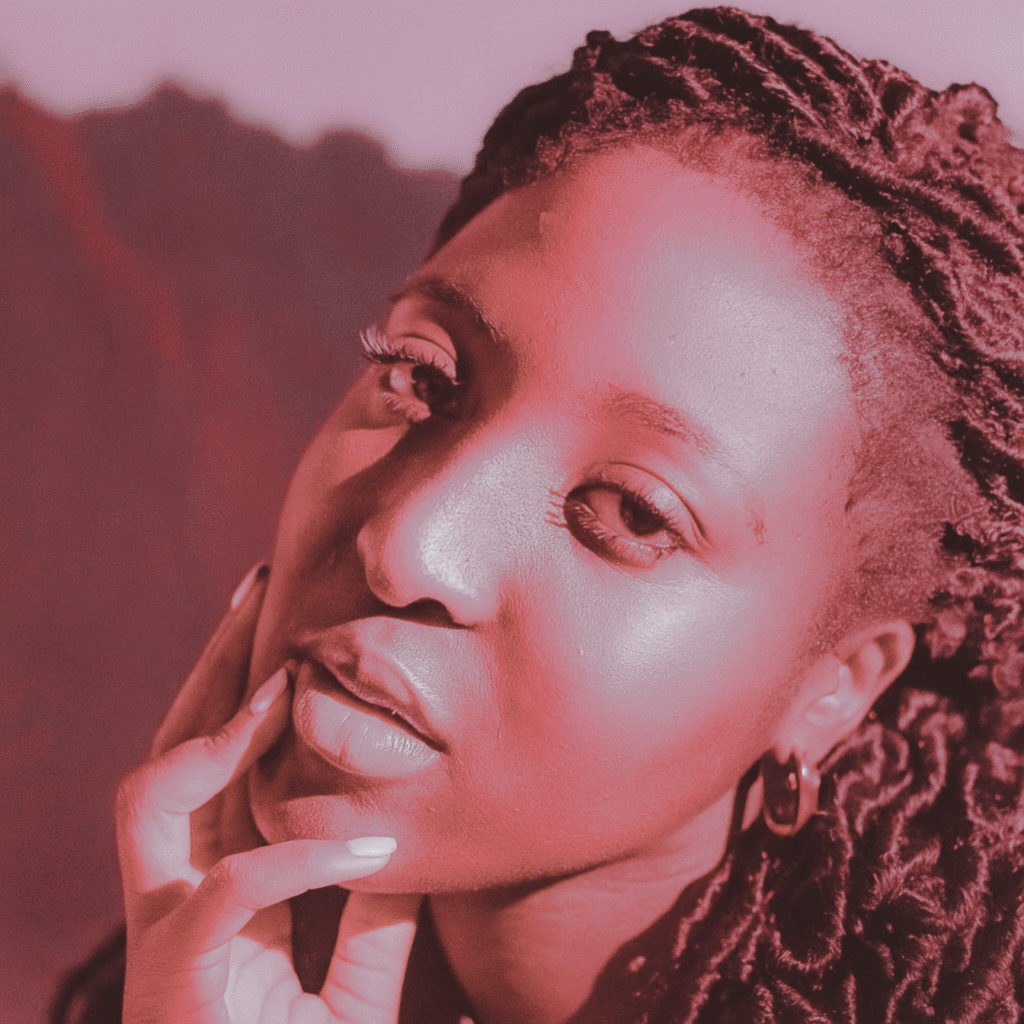
Live performance is where MAAME’s introspection becomes something electric. She’s performed at Dreamland, Elsewhere, and the POW Festival, and says the key to translating studio intimacy to the stage lies in relentless practice. “Rehearse, rehearse, rehearse,” she says emphatically. “When you perform and you’re nervous, what helps the most is rehearsing so much that it feels effortless. When I perform, I can’t help but feel invested in the song. I have to sing it as though the words matter a lot to me. It comes naturally.”
She finds performing originals easier than covers. “When I do a cover, I feel myself thinking a lot more. There’s more brain power in it because it’s not your own words. But you still have to make it look effortless.” As she looks to the future, MAAME’s next chapter promises contrast — a return to her darker creative corners. “I’m very excited to go into darker themes,” she says. “Once again it will contrast with this single a lot, but I love to explore different corners of my artistry.”
She envisions her next work as a deeper, more cohesive reflection of who she is. “I didn’t want to narrow myself down too early in the process,” she says. “But going forward I hope to be more cohesive in my music and aesthetic. I’d like to touch upon more pop R&B, with some afrobeat and jazz elements sprinkled in.” Her voice takes on a quiet conviction. “The ideas I’m working on next feel more authentic, more self-aware, and more original — and I hope they remain just as relatable.”
In “Daydreaming,” MAAME invites us into a world where color and emotion intertwine, where imagination becomes a refuge. But in speaking to her, it’s clear that her real power lies in the way she translates introspection into something universal. Her songs don’t just escape reality — they remake it in her own image, one pastel dream at a time.
Featured Images: Artist Supplied


